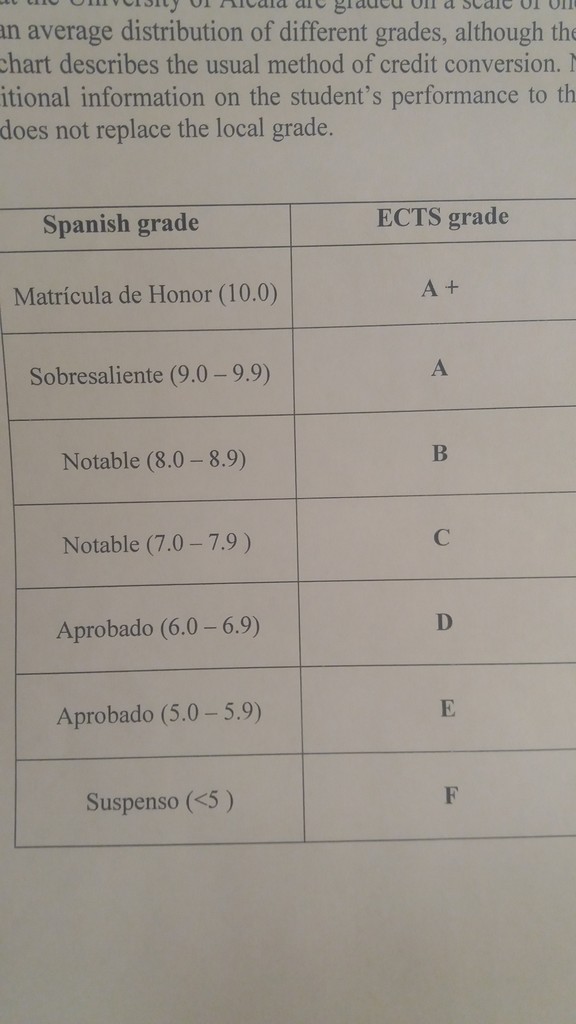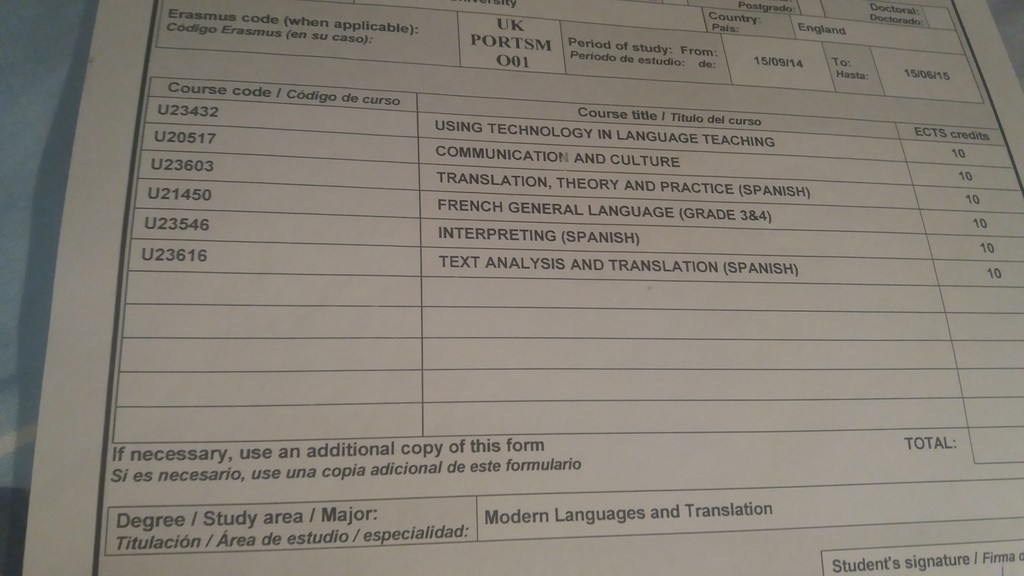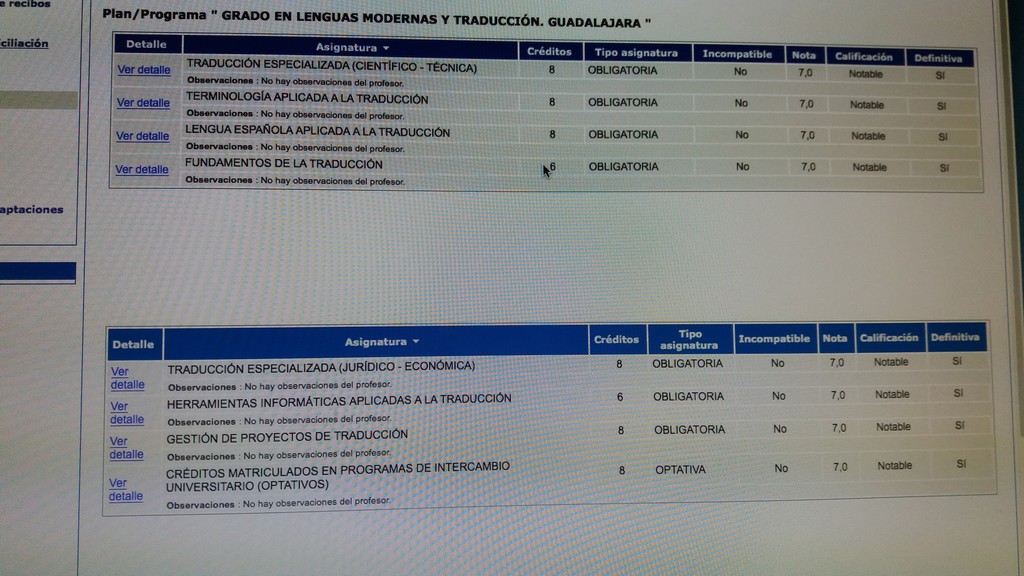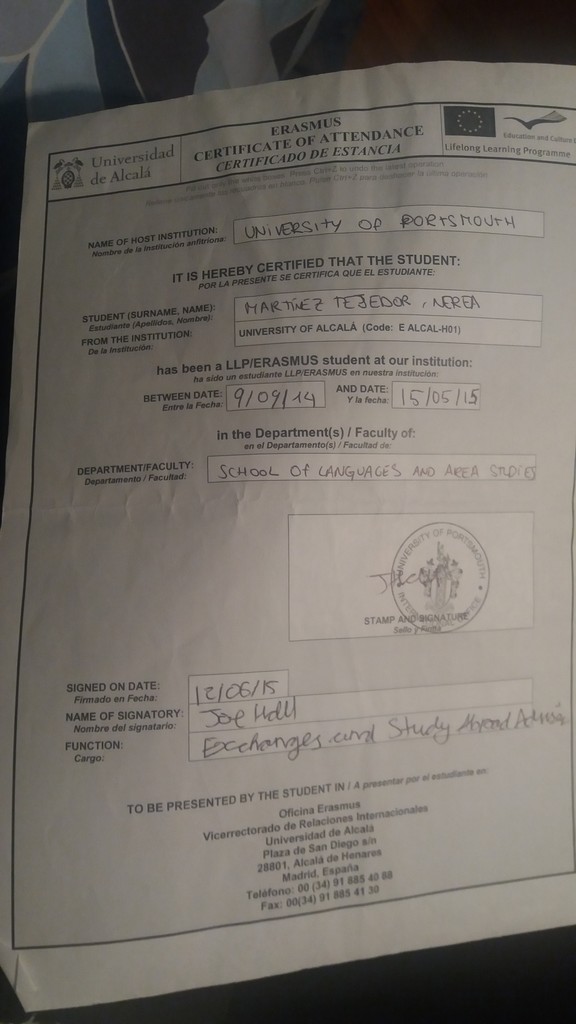Grade validations and more paperwork
Hello everyone, today I’m dedicating this post to telling you what my grade validations were like at my home university once I’d returned from my Erasmus. I’ll also tell you about how grades work in England, more specifically in the University of Portsmouth, which is where I was for the 2014-2015 academic year. Finally I’ll tell you about the final papers to sign and the administration completion of the past year in the UK. Let’s begin:
I think it’s convenient to start with the topic of grades in England. It’s not like it is in Spain there, the grading system is different. I really didn’t know this, by ignorance I thought that the student evaluation system was done in the same way in all of Europe. But no, it’s not like that, just like how in Germany the system has nothing to do with neither the Spanish nor the British one. I suppose that each country will have its own set of rules and in that case styles.
In England’s case, grades don’t go from 1 to 10. The system that they use there goes from 10 to 100, but don’t think that 10 is equivalent to a 1 and 100 to a 10, not at all. Grades can also be classified by letters. There it works in ranges, which means that a figure doesn’t equal an exact number, neither with the letters. So that you understand me better, I’m going to do you a step-by-step outline, where it’ll be a little more clear and concise. In turn, I’ve added a photo of one of the pages that explains the system of grading by letters very well.
- Getting less than 40 is considered a fail
- Getting 40 out of 100 is equivalent to a 5 in Spain
- Getting 50 out of 100 is the same as getting a ‘notable’
- Getting 60 or 70 is a really good grade and scrapes a ‘sobresaliente’
- Getting between 70 and 80 is considered ‘sobresaliente’
- Getting between 80 and 100 would be a distinction (they never give more than 80, it would be an exceptional case)

I hope that this little diagram clears things up a little. Well, as I’ve already said, getting a 70 or above is a really good grade. Above all if you get higher than 70 it’s considered ‘sobresaliente’. Despite at first seeming that a 10 is a 1 and a 100 is a 10, as you can see, it’s not like that. In fact they told us at the beginning of the course that if they ever give you 100, the work is worthy of publication, it would be a real work of art. And if it were an exam it would be framed. However, I’d rather classify the grades from 10 to 80, with the 80 being a 10 because more than this would be the work of a genie that’s escaped from a magic lamp, and for the entire year that I was there I never met anybody who was given this grade, and I saw that there was high grades. Also one of my classmates, who was English and knew very well what it was like to be there, explained to me that somebody achieving 100 happened very rarely, and he didn’t know anybody who had got this grade. It’s more or less like Spain in the sense that a student can get a ‘sobresaliente’, a 10, but cannot achieve a ’matrícula de honor’ because this would be climbing to a much higher level. Sometimes it does happen, in fact I have a friend that got a ‘matrícula’ in her degree but it doesn’t happen every day, in fact she was the only one in her year group. Overall, it’s a different system.
As for my grades and validations:
Right, now I’m going to tell you what my final results were like, what grades I got and how my dear Erasmus coordinator did the validations upon arrival.
Once I knew my grades, which by the way, I know more or less the same week as doing the exam, and a little later for the coursework because the teacher takes more time to correct coursework as they’re longer and there’s more content, all I had to do was await my return to Spain and meet with my coordinator to tell him what results I’d obtained. My grades were between 55 and 69 out of 100. This means I had passed everything and I had some grades higher than the others. I really didn’t know how my coordinator was doing to process my grades, since shortly before returning to Spain I found out that in each university a different person is in charge of the final validations. This means that in my university my grades could have been all 5s, but in another all 8s, something like that so that you understand.
So in the end a few days before leaving Portsmouth I sent an e-mail to the coordinator telling him that I was returning on the 15th, that I had passed everything and I asked him when we would meet to validate my subjects. He told me that I could see him straight away, so more or less two days after my arrival, I went to the university and took all of my Erasmus paperwork (because I didn’t know exactly what he was going to ask for). He asked me how everything had gone with my stay and I told him a little about how badly it went at the beginning and how well it went in the end. He asked me for my grades and we began the task.

My modules at Portsmouth were those on the left, and the validations are on the right:
-Interpreting – Project management
-The basis of translation
-Communication and Culture –Spanish language applied to translation
-Text Analysis and Translation –Terminology applied to translation
-Translation Theory and Practice – Scientific-technical specialized translation
-French III
-Using Technology in Language Teaching Media – Technological tools
Due to the issue of ECTS credits that also don’t work like they do in Spain, the subjects correspond to total credits and not to the number of modules. As I said before, I had passed everything but I needed to know the ‘real’ grades that I was going to have for the 3rd year of my degree.
My Erasmus coordinator explained to he had an official validation chart from the university that he would use to work out my final results. He said that since I didn’t have any ‘sobresalientes’, he would take an average of my results over the course of the year and these would be my final grades. That’s how it was. (It didn’t seem fair to me, by the way). He worked out an average and I came out with a 7, just. So my notes for third year are all 7s. It didn’t seem right to me that he was saving himself the job of properly validating each subject, because according to him it would be too complicated, so I was assigned that method.

For example, the validations that they did for me or Miguel or Meriem in Alcalá weren’t the same as for Álvaro in Salamanca. For example, Miguel and Álvaro had ’sobresaliente’ in one, and they validated it as that for Miguel but not for Álvaro, they were a lot harder on him. So this confirms that each university does the validations how they see fit. It’s not fair at all but whatever, they say that’s how it is.
Finally, I had to finalise the Erasmus period so I took the sheet that Portsmouth had signed to my coordinator, who also signed it and told me that for the validations I had to go to the deanery so that they could give me an official stamp and to the student secretary so that they too could sign the document. So that’s how I finished the paperwork that was honestly giving me quite a headache since they send you to places far from home just for them to give you a simple stamp and a signature. Oh how I hate bureaucracy... But thanks to all of this I was able to enjoy the experience of a life time, so don’t be knocked back by the paperwork, because although it seems a lot at first, it’s not too bad after all.

I hope this has helped you in some way.
Photo gallery
Content available in other languages
- Español: Convalidaciones y más papeleo
- Italiano: La convalida dei voti e altre formalità
Want to have your own Erasmus blog?
If you are experiencing living abroad, you're an avid traveller or want to promote the city where you live... create your own blog and share your adventures!
I want to create my Erasmus blog! →







Comments (0 comments)